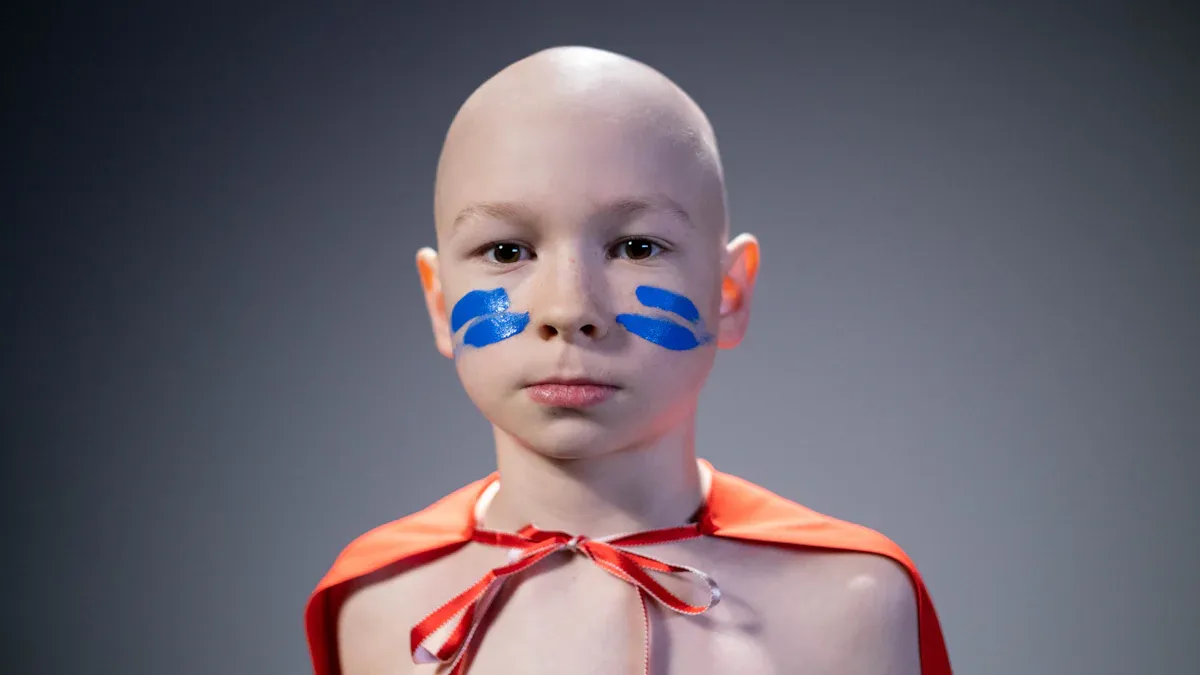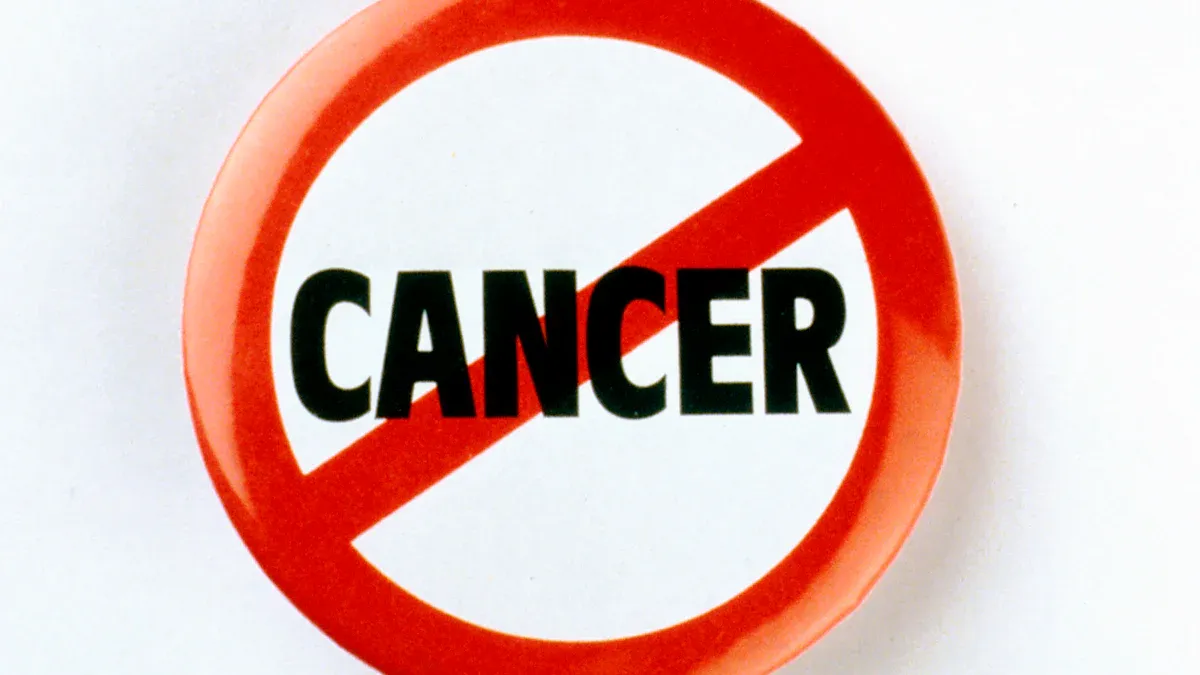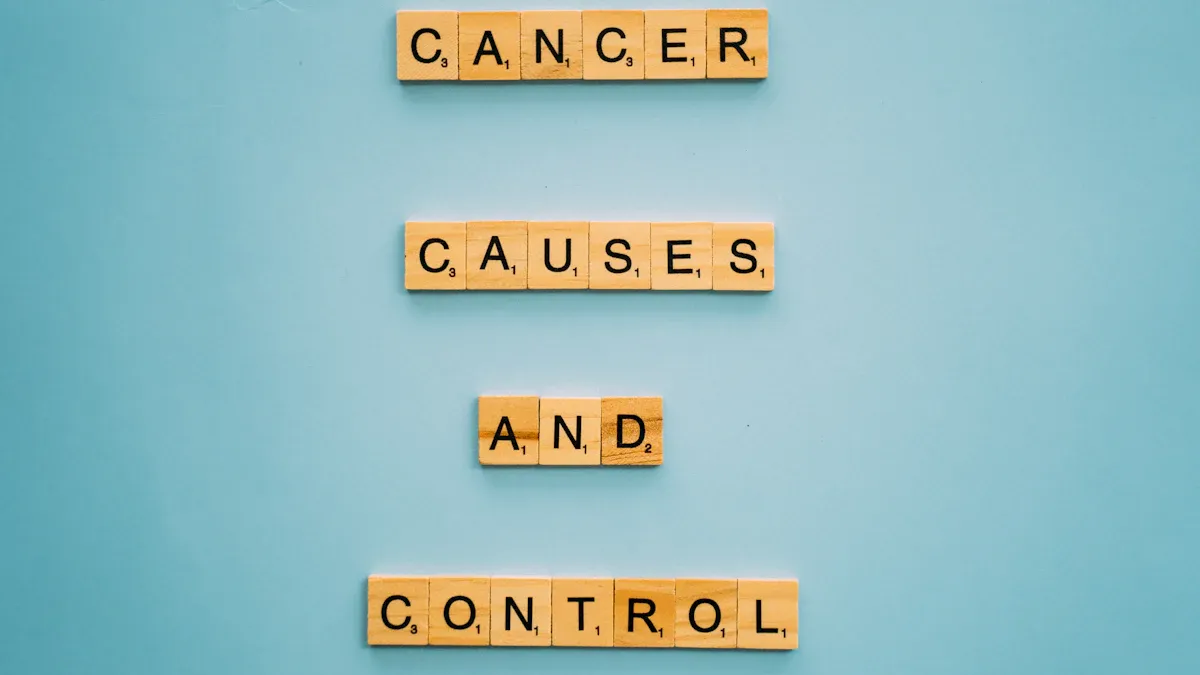Why Cancer Is Not Always Your Fault and What You Should Know About Risk Factors

Cancer affects millions of people worldwide, and it’s important to recognize that cancer isn’t always your fault: the truth about risk factors reveals a more complex picture. In 2022, nearly 20 million new cancer cases were reported globally, with 42% in the U.S. linked to modifiable factors like smoking or diet. However, many cases stem from genetic or environmental factors that are beyond your control. For example, in the UK, 19.4% of cancers were tied to smoking, but others were linked to occupational exposures or infections. Understanding these risk factors can help you see why cancer isn’t always your fault: the truth lies in its complexity.
Key Takeaways
Cancer happens due to many things, like genes and surroundings, which you can't always control.
Living healthy, like not smoking and eating good food, can help lower cancer risk but won't stop it completely.
Getting regular check-ups is key to finding cancer early and can make treatments work better.
Feeling guilty after learning you have cancer is normal, but remember, many causes are out of your hands.
Learning about cancer risks helps you make smart choices and push for better health rules.
Cancer Isn’t Always Your Fault: The Truth About Risk Factors
The Science Behind Cancer Development
The role of random genetic mutations
Cancer often begins with changes in your DNA. These changes, known as mutations, can occur randomly during cell division. Every time your cells divide, they copy their DNA, but errors can happen. Most of these errors are harmless, but some can disrupt normal cell functions and lead to cancer. For example, mutations in the KRAS gene can create abnormal proteins that promote uncontrolled cell growth. Over time, cancer cells may accumulate more mutations, making the disease even more complex.
Aging as a major risk factor
As you age, your risk of developing cancer increases. This happens because your cells have undergone more divisions over the years, giving more opportunities for random mutations to occur. Additionally, your body’s ability to repair damaged DNA weakens with age. Studies show that older adults account for the majority of cancer diagnoses, highlighting aging as a significant, uncontrollable risk factor.
Uncontrollable Risk Factors
Genetic predisposition and family history
Your genes play a crucial role in cancer risk. Some people inherit mutations that increase their likelihood of developing certain cancers. For instance, mutations in the BRCA1 and BRCA2 genes significantly raise the risk of breast and ovarian cancers. If you have a family history of cancer, it doesn’t mean you will definitely develop it, but it does increase your risk.
Environmental exposures beyond personal control
You may encounter harmful substances in your environment without realizing it. Air pollution, secondhand smoke, and exposure to carcinogens at work are examples of risks you cannot always avoid. In the UK, occupational exposures accounted for nearly 5% of cancer cases in 2010. These exposures often depend on where you live or work, making them difficult to control.
Biological sex and hormonal influences
Your biological sex and hormones can also affect your cancer risk. For example, women face a higher risk of breast cancer due to hormonal changes throughout their lives. Men, on the other hand, are more likely to develop prostate cancer. These differences stem from biological factors that you cannot change, emphasizing the role of uncontrollable risks in cancer development.
Modifiable Risk Factors: What You Can and Cannot Control

Lifestyle Choices and Their Impact
Smoking, alcohol, and diet
Your daily habits can significantly influence your cancer risk. Smoking remains the leading preventable cause of cancer. Cigarette smoke contains harmful chemicals that damage DNA and promote tumor growth. Alcohol consumption also increases the risk of cancers like liver, breast, and throat. Even moderate drinking can contribute to this risk. Diet plays a crucial role as well. Consuming processed meats, sugary drinks, or foods high in saturated fats may increase your chances of developing cancer. On the other hand, a diet rich in fruits, vegetables, and whole grains can support overall health and reduce risk.
Physical activity and weight management
Staying active and maintaining a healthy weight can lower your cancer risk. Physical activity helps regulate hormones and reduces inflammation, both of which play a role in cancer development. Excess body weight has been linked to several cancers, including colorectal, breast, and pancreatic. Studies show that modifiable risk factors, such as smoking, excess weight, and inactivity, contribute to over 40% of cancer cases and deaths in the U.S. Small changes, like walking daily or choosing healthier meals, can make a big difference.
The Limits of Prevention
Why healthy habits cannot guarantee cancer prevention
Even with the healthiest lifestyle, cancer can still occur. Random genetic mutations, aging, and environmental exposures often play a role. These factors are beyond your control. While healthy habits reduce risk, they cannot eliminate it entirely. For example, non-smokers can still develop lung cancer due to genetic predisposition or environmental factors.
The interplay of multiple risk factors
Cancer often results from a combination of factors. Modifiable risks like smoking or diet interact with uncontrollable ones, such as genetics or age. This complexity highlights why cancer isn’t always your fault: the truth about risk factors lies in understanding this interplay. By focusing on what you can control, you can take proactive steps toward better health without self-blame.
Coping with Guilt and Blame After a Cancer Diagnosis
Understanding Emotional Reactions
Why guilt and blame are common feelings
After a cancer diagnosis, you might feel guilt or blame yourself for the disease. These emotions often stem from the belief that your actions caused the illness. You may replay past decisions, wondering if smoking, diet, or stress contributed to your condition. This self-reflection can lead to feelings of regret, even when the cause of cancer is beyond your control. It’s important to remember that cancer often results from a mix of factors, many of which you cannot influence.
The role of societal stigma in fostering self-blame
Society sometimes reinforces the idea that cancer is preventable through lifestyle choices. This belief can create stigma, making you feel judged or responsible for your diagnosis. For example, public health campaigns often focus on modifiable risk factors like smoking or diet. While these messages aim to educate, they can unintentionally foster self-blame. Recognizing that "Cancer Isn’t Always Your Fault: The Truth About Risk Factors" can help you challenge these harmful narratives.
Strategies for Emotional Support
Seeking professional counseling or therapy
Talking to a counselor or therapist can help you process your emotions. Professionals trained in oncology-related mental health can provide tools to manage guilt and blame. Therapy offers a safe space to explore your feelings and develop coping strategies.
Building a support network of family and friends
Lean on your loved ones for emotional support. Sharing your thoughts and fears with trusted individuals can lighten your emotional burden. Friends and family can remind you that cancer is not your fault and offer encouragement during difficult times.
Practicing self-compassion and mindfulness
Self-compassion involves treating yourself with kindness instead of criticism. Mindfulness practices, like meditation or deep breathing, can help you stay present and reduce anxiety. These techniques encourage you to focus on what you can control rather than dwelling on the past.
Tip: Journaling about your feelings can also help you process emotions and identify patterns of self-blame.
Empowering Yourself: Proactive Steps for Health and Well-Being

Focus on What You Can Control
Regular screenings and early detection
Regular screenings play a vital role in catching cancer early when treatment is most effective. You can schedule routine check-ups based on your age, family history, and risk factors. For example, mammograms help detect breast cancer, while colonoscopies screen for colorectal cancer. Early detection increases the chances of successful treatment and can save lives. Talk to your doctor about which screenings are right for you.
Tip: Keep a calendar or set reminders for your screenings to stay on track.
Adopting healthy habits without self-judgment
Healthy habits can improve your overall well-being and reduce cancer risk. Focus on eating a balanced diet, staying active, and avoiding tobacco. However, it’s important to approach these changes with kindness toward yourself. Perfection isn’t the goal. Small, consistent steps make a big difference. For instance, swapping sugary drinks for water or taking a short walk daily can have long-term benefits.
Remember, adopting healthy habits is about progress, not perfection.
The Importance of Education and Advocacy
Staying informed about cancer risks and prevention
Educating yourself about cancer risks empowers you to make informed decisions. Reliable sources like the American Cancer Society or the National Cancer Institute provide up-to-date information. Understanding the difference between controllable and uncontrollable risk factors helps you focus on what you can change. This knowledge reinforces the idea that cancer isn’t always your fault: the truth about risk factors is more complex than personal choices alone.
Advocating for better public health policies
Advocacy can create meaningful change in cancer prevention and care. You can support policies that reduce environmental carcinogens, improve access to screenings, or promote healthy lifestyles. Writing to local representatives or joining awareness campaigns amplifies your voice. Advocacy not only benefits you but also helps others in your community.
Note: Small actions, like sharing educational resources, can inspire others to take proactive steps too.
Cancer is a complex disease influenced by many factors, including those beyond your control. Understanding the difference between controllable and uncontrollable risk factors helps you reduce feelings of guilt or blame. Focus on proactive steps like regular screenings and healthy habits to support your well-being. Remember, self-compassion strengthens emotional resilience. Empower yourself with knowledge and seek support when needed. By prioritizing what you can control, you can approach your health journey with confidence and without self-blame. Cancer isn’t always your fault: the truth about risk factors lies in its complexity.
FAQ
What are the most common uncontrollable cancer risk factors?
Uncontrollable factors include aging, genetic mutations, family history, and environmental exposures like air pollution. These risks occur naturally or due to circumstances beyond your control.
Tip: Focus on what you can control, like regular screenings and healthy habits, to reduce overall risk.
Can stress cause cancer?
Stress alone doesn’t directly cause cancer. However, chronic stress may weaken your immune system or lead to unhealthy habits like smoking or overeating, which can increase risk.
Note: Managing stress through mindfulness or exercise can improve your overall health.
How do genetic mutations lead to cancer?
Mutations change how cells grow and divide. Some mutations occur randomly, while others are inherited. When these changes disrupt normal cell functions, they can lead to cancer.
Example: BRCA1 and BRCA2 mutations increase the risk of breast and ovarian cancers.
Is cancer always preventable?
No, cancer isn’t always preventable. Factors like aging, genetics, and random mutations are beyond your control. Healthy habits reduce risk but don’t guarantee prevention.
Remember, early detection through screenings can improve treatment outcomes.
Should I feel guilty about my cancer diagnosis?
No, you shouldn’t feel guilty. Cancer often results from a mix of factors, many of which you can’t control. Blaming yourself isn’t helpful.
Tip: Seek emotional support from loved ones or a counselor to process your feelings.
See Also
Essential Insights About Carcinoid Tumors You Must Understand
Key Symptoms And Causes Of Anal Cancer Explained
Recognizing Symptoms And Causes Of Esophageal Cancer

